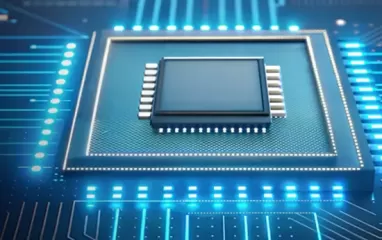Other recent blogs



Let's talk
Reach out, we'd love to hear from you!
When the potentials of the Internet of Things (IoT) were unraveled, fleet operators all over the world were filled with euphoria, at least those who were yearning to go to the next level.
Digital-age innovations have triggered an unprecedented transformation in the fleet management industry. Smart devices, sensors, actuators, and more — underpinned by IoT — are proving to be growth and performance enablers for fleet operators. Reports suggest that the IoT fleet management market revenue worldwide is expected to reach $15,500 million by the end of 2024, which, in 2016, was only $3,250 million. Research organizations have deduced that the growth prospects with IoT seem to be high and global fleet operators are largely accepting the technology.
So, what change will take place with the introduction of IoT in the fleet industry?
Fleet operators, who have perceived the true potentials of IoT, are celebrating. Smart fleet management solutions, which are predicated on technologies such as telematics, cloud, big data, and largely IoT, have proven to be the real game-changer for many of the freight and transport businesses all over the world. Let’s understand how IoT accelerates the big wheel and enables fleet operators to speed up their journey for constant growth and success.
How IoT Revolutionizes Fleet Management?
The IoT Technology has amplified fleet management potentials to the extent that even if we call it to be the curator of the other technologies that underpin smart fleet management solutions, we won’t be wrong. With IoT, the idea of connected vehicles has turned out to be a reality. The technology has fostered Machine-to-Machine (M2M) communication and paired up telecommunications with informatics to transmit and disseminate valuable information to stakeholders in real-time, which is a primary reason for all the benefits smart fleet management solutions have to offer.
The following are eight ways in which IoT helps the fleet management industry transform and gain competitive advantages.
- Remote Monitoring of Assets and Fleet Tracking : Smart fleet management solutions make the best use of telematics (i.e., telecommunication and informatics), which is an IoT Application meant for vehicles. It allows fleet operators to efficiently monitor vehicles’ location and assets’ movement by connecting sensors and GPS (Global Positioning System) devices to them. Telematics supports two-way communication and is designed to record and transmit data in real-time. Therefore, it significantly helps fleet operators monitor the safety of both vehicles and drivers, as well as, ensure timely delivery of goods.
- Automation of Tasks and Processes : Automation helps create intelligent transport systems and provide security and safety of assets, including drivers and vehicles, at its best. If reports are to be considered, approximately 90% of the accidents happen due to human error and automation is believed to be a perfect solution to mitigate risks. Integrated with automation capabilities, smart fleet management solutions can help to send automated notifications to all the connected devices, which works both ways. In other words, drivers can be informed in real-time in case of rerouting required due to traffic congestions, weather-related disruptions, or for any other reasons. On the other hand, automation also helps smart trucks send notifications to the nearby service stations as well as fleet operators in case of breakdowns or accidents.
- Efficient Fleet Operations Management : Collaborating with disparate technologies such as cloud, big data, and more, IoT creates a connected ecosystem, where data flows flawlessly. Endpoints are well connected and data can be accessed in real-time, that too anywhere and at any time. Thanks to the cloud. Fleet operators can also integrate smart fleet management solutions with their existing ERP systems that will help the management and monitoring centers make informed decisions quickly. They can also build a dashboard, which can work as Key Performance Indicators (KPI) and give a unified view of the fleet-wide data in order to conduct performance evaluation and operations research.
- Cost Optimization and Higher Bottom Line: The IoT technology helps freight and transportation businesses circumvent the traditional ways of operating, which are not only time consuming and costly but also creates a communication gap between stakeholders. The technology successfully integrates with other technologies to alleviate day-to-day fleet operations. Moreover, it allows fleet operators to seamlessly connect with the non-management workforce, not only to communicate with them in real-time but also to provide feedback as well as training whenever required. Another way smart fleet management solutions help optimize costs is by making sensors and other communication devices available at comparatively economical prices. Additionally, IoT also helps the fleet operators avail discounts in insurance pricing as well because smart fleet management tools provide a higher degree of assurance, validation, and proof to the insurance companies.
- Scrutinization of Engine Performance and Fuel Efficiency: Traditional methods of fleet management never much supported fleet operators in monitoring vehicles’ engine performance as well as fuel efficiency. But that’s not the case with smart trucks. They have a digital tachograph installed on them that makes the reporting structure intelligent. To elaborate it further, digital tachograph records complete data with respect to vehicles’ utilization and share it with different stakeholders in real-time via connected devices. It helps in knowing, for instance, the total distance a particular vehicle has covered and at what speed. Such information aids the decision-making abilities of fleet operators and complements vehicles’ health as well.
- Robust Driver Behavior Management : Fleet operators business’ performance has a large dependency on how their drivers behave. They can use IoT to easily and remotely keep an eye on infringements, or whether drivers’ are adhering to the operating standards and are following the defined schedules and routes or not. IoT uses sensors that enable fleet operators to study the engine ON/OFF frequency, braking pattern, accelerator pattern, and even the sleep pattern. It can help drivers stay awake by sending real-time alerts by utilizing image-processing tools that recognize the movement of eyes while driving and alerts as and when required. Drivers can also rely on smart fleet management tools to anticipate future events or accidents and thus mitigate risks. Moreover, with Electronic Logging Devices (ELDs) installed on smart trucks, the operators can have a proper record of drivers’ driving hours and therefore, adhere to the DOT guidelines.
- Improved Decision Making with Big Data Analytics : Another reason, IoT-enabled smart fleet management solutions are worth counting upon is that they allow you to drive business value by supporting a robust analysis of data and statistics. When data is run through analytics, it helps fleet operators gain actionable insights from across their fleet. For instance, they can easily know about drivers’ driving patterns, analyze routes, track the average delivery time, and have similar other insights, which can help them streamline entire business functions and optimize enterprise-wide resources for gaining maximum benefit. It is also to be noted that technologies such as telematics add value to analytics, as they enable freight and transport business owners to reap the benefits of prescriptive analytics, which not only helps in identifying problems but also suggests potential solutions for the same.
- Predictive Maintenance of Vehicles: Smart trucks are known for their intelligent reporting capabilities. The reason being, they consist of advanced systems such as On-Board Diagnostics (OBD), which works in harmony with the IoT technology. The OBD system integrates with IoT-enabled connected devices and allows fleet operators to remotely procure key information with respect to vehicles’ diagnosis. Initially, when the OBD system was developed in the 1980s, it was primarily meant to keep a check on the engines’ performance, but with the latest version, i.e., OBD-II, the system has been upgraded to send early malfunction warnings as well. Therefore, with such advanced systems, smart fleet management solutions significantly support predictive maintenance of vehicles, wherein the fleet operators can perform repairing and servicing tasks, much before the damage is done.
IoT helps achieve beyond just smart Fleet Management
IoT is the cradle, where a connected ecosystem flourishes. The ecosystem connects enterprise-wide applications and assets, irrespective of locations, and help fleet operators gather actionable data on virtually everything of importance. Technologies, such as IoT act as a facilitator that reduces the communication gap between suppliers and customers and fosters the relationship between them.
The environmental benefit is the other perspective to look upon. Reports suggest that the IoT-based connected ecosystem helps fleet operators reduce the vehicle-to-site time by approximately 68%. It ultimately results in less consumption of fuel, and therefore, in less emission and reduced carbon footprints.
Therefore, IoT is the technology that facilitates the reinvention of fleet management in a holistic sense. In fact, smart fleet management can be said to be a key IoT use case, which churns out true potentials of the technology.



